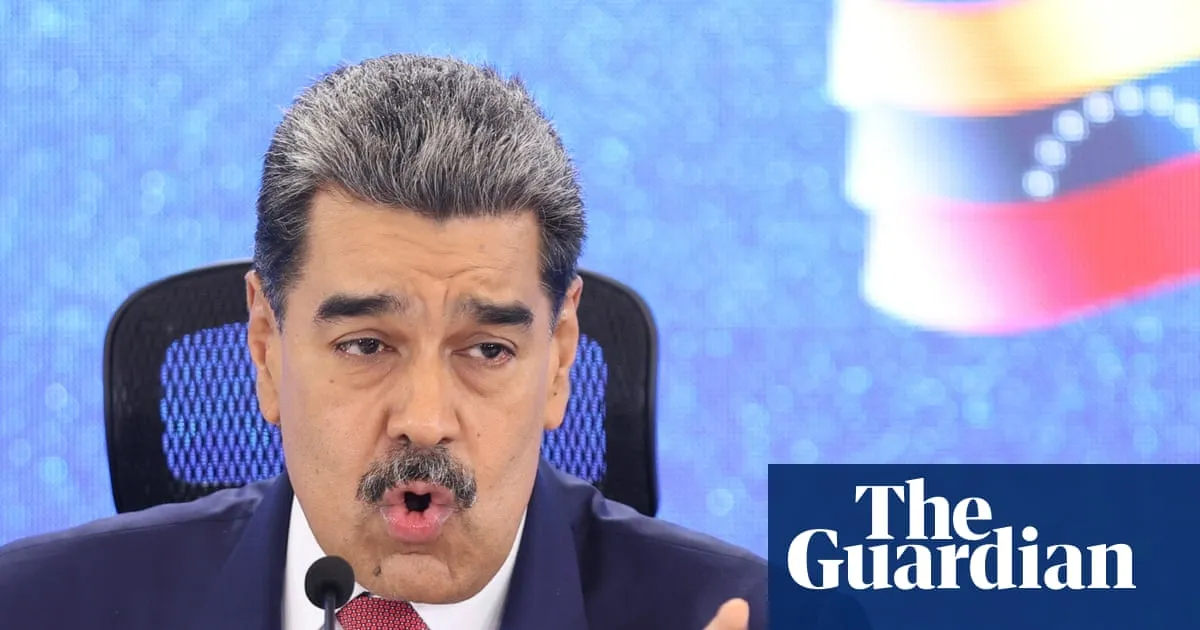
The ghosts of Latin American coups from the past are being evoked amidst Donald Trump’s aggressive military buildup aimed at Nicolás Maduro, the autocratic socialist leader of Venezuela. The U.S. government has labeled Maduro a narco-terrorist, heightening tensions reminiscent of historical events such as the military coup that toppled Salvador Allende, Chile’s democratically elected Marxist president, in 1973, and the assassination of Rafael Trujillo, the long-standing dictator of the Dominican Republic, in 1961.
Allende’s demise serves as a cautionary tale for Maduro. When troops stormed the presidential palace in Santiago, Chile, it marked the beginning of a brutally repressive military regime under General Augusto Pinochet. While some believe that Allende took his own life during the coup, skepticism remains regarding this explanation, especially considering the involvement of the Nixon administration in orchestrating the coup. The Central Intelligence Agency (CIA) is suspected of supplying the weapons that were utilized in the operation to eliminate Trujillo, another figure whose fate looms over Maduro.
The history of U.S. interventions in Latin America is rife with examples of overthrowing democratically elected leaders. In 1954, Guatemalan President Jacobo Arbenz was ousted in a CIA-backed coup that sparked a civil war lasting three decades, claiming approximately 150,000 lives. Furthermore, the CIA’s numerous attempts to assassinate Fidel Castro, Cuba’s communist leader and an ally of Maduro, underline the lengths the U.S. has gone to in enforcing its foreign policy in the region.
As the U.S. gears up for its largest naval buildup in the region since the Cuban missile crisis of 1962, there are growing concerns that Maduro’s regime may be facing a similar fate. Reports indicate that Washington is poised to execute military strikes on specific Venezuelan military facilities identified as drug smuggling hubs. U.S. officials have made it clear that these actions could have dire implications for Maduro’s future.
Trump has authorized covert actions against Venezuela, yet he has refrained from confirming whether U.S. forces are permitted to eliminate Maduro. According to Fulton Armstrong, a former CIA analyst, the tight security surrounding Maduro means that any attempt to apprehend him could easily lead to fatal outcomes. “The idea of trying to take him alive is unrealistic given the circumstances,” Armstrong noted.
Maduro has already survived an assassination attempt in 2018 when drones exploded during a military parade in Caracas. He accused Colombia of orchestrating the attack, although some critics suggested it was a staged event aimed at garnering sympathy. Additionally, a 2020 botched operation, dubbed the “Bay of Piglets,” involved dissidents attempting to capture Maduro, further highlighting the precarious nature of his position.
The Trump administration has deployed a formidable array of military assets near the Venezuelan coast, signaling a strong intent to enact regime change. The recent arrival of the USS Gerald Ford, the largest aircraft carrier in the U.S. Navy, alongside destroyers equipped with Tomahawk cruise missiles and bombers, underscores the seriousness of U.S. intentions. Washington alleges that Maduro and other Venezuelan officials are at the helm of a drug trafficking cartel, despite Maduro’s vehement denial of such claims.
Trump’s strategy, including the authorization for the CIA to carry out covert operations in Venezuela, raises significant concerns about the potential for fatal outcomes. “The administration seems to be aware that the policy could endanger Maduro’s life,” noted Armstrong. However, some analysts believe that pushing for a coup among Maduro’s opponents may ultimately lead to a successor aligned with the leftist ideologies of his predecessor, Hugo Chávez.
Angelo Rivero Santos, a former Venezuelan diplomat, cautions that the chances for a successful coup are diminished by the current domestic realities within Venezuela. “The year 2025 is not 1973,” he remarked, highlighting that current opposition sentiments do not support a coup against Maduro.
The U.S. approach towards Venezuela is steeped in a complex history of intervention and regime change, with the specter of past coups casting a long shadow over current events. As the Trump administration intensifies its military posture against Maduro, the implications of these actions could reshape the political landscape in Venezuela and beyond.